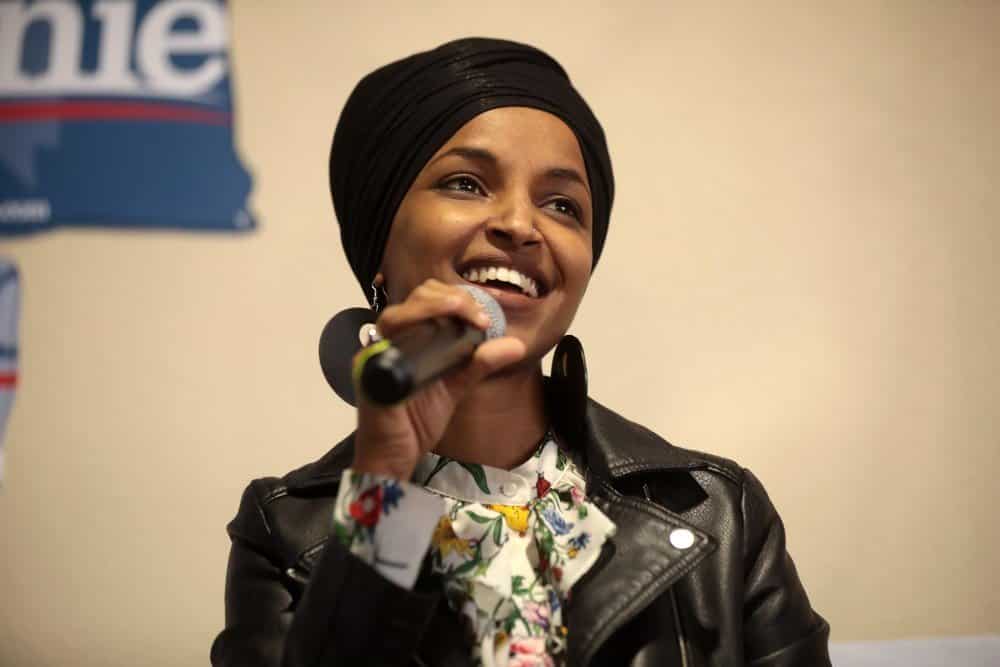The chaos of the 2020 election and its aftermath deflected national attention from the standing threat of political Islam. Fanning amnesia is the hallucinogenic drumbeat from Christian churches—Vatican in the lead—about “the religion of peace.”
But while Islam has receded from the public mind, Islamic ambitions remain intact. President Biden is poised to facilitate those objectives by reviving the Iran nuclear deal.
Pope Francis’ March visit to Iraq’s Grand Ayatollah al Sistani in the name of “co-existence” ignored Islam’s quest for religious dominance. The Vatican eases its advance with a newly launched ten-part webinar that recasts the mother of Jesus as “Mary, a Model of Faith for Christianity and Islam.”
Leading Islam-watcher William Kilpatrick warns against Christian credulity in illusions of multicultural harmony. He agreed to talk about misconceptions about the motivating tenets of this expansionist ideology.
Kilpatrick writes: “Historically, Christianity has been Europe’s strongest bulwark against Islamization. That heritage has been squandered to the point where it is almost lost.” His most recent book, “What Catholics Need to Know About Islam,” is an effort to reclaim that heritage.
Maureen Mullarkey: You consistently warn against what we might call the fallacy of root cause. Much mainstream commentary explains the origin of Islamic terrorism in foreign policy issues or socioeconomic factors. You reject that reasoning. Why?
Kilpatrick: The root cause of Islamic terrorism is Islam. Historic conflicts between Muslims and Christians were primarily religious wars. They were not, as many contemporaries suggest, wars for resources. The Islamic creed belies bromides about the “religion of peace.”
It is faith in Islam that fuels jihadists. The doctrine of jihad—the belief that Muslims have a religious obligation to fight unbelievers—is solidly based in the Koran, the hadith, and the “Life of Muhammad.” It is also rooted in the long bloody span of Islamic history.
Enthusiasm for violent jihad is not a result of poverty or of social justice issues. Violence is a theological imperative. The Koran makes it clear that performing acts of charity or praying in a mosque are less worthy than fighting for Allah’s cause (9: 19-20).
MM: This points to the Islamic concept of heaven. Why should non-Muslims worry about those virgins in paradise?
Kilpatrick: The adolescent fantasy that jihadists will be rewarded with 72 virgins in paradise is one of the prime motives for acts of terror. Muslims believe that an act of jihad will erase your past sins, and earn you, and your parents, as well, a place in paradise.
Non-Muslims who don’t want to become some young Muslim’s ticket to paradise have a vested interest in debunking this male-friendly, harem-in-heaven depiction of the afterlife. Take away the virgins and you take away one of the chief incentives to commit jihad.
MM: How feasible would it be to critique this belief? Muslims believe that the Koran was dictated by God. Thus, any attempt to question the text is blasphemous.
Kilpatrick: Muslim apologists have ready answers for critiques of their beliefs, but, in the end, their rationales assume that the Koran was dictated by God. Ironically, however, their defense of that belief is extraordinarily weak. It comes down to this: the Koran is such an outstanding literary masterpiece, they say, that only God could have written it.
Yet the Koran has to be one of the most clumsily written books in existence. Historian and essayist Thomas Carlyle described it as “a wearisome, confused jumble.” Although the Koran contains occasional lyrical passages, it is, as a whole, lacking in continuity, coherence, and clarity. The author, whoever he was, had some poetic talent, but practically no skill in composition. Indeed, from the view point of composition, almost any book you pull from your shelf is better written. In short, it strains credulity to believe that the Author of Creation was incapable of doing better.
There is little evidence that God wrote the Koran. On the other hand, there is quite a bit of evidence within the Koran itself that it is a purely human fabrication. For example, the book contains numerous “revelations of convenience” that seem designed to grant Muhammad a favor (e.g., as many wives as he wanted; a larger share of battle spoils) or to help him out of a jam.
The Koran could not withstand the kind of critical textual analysis that the Bible has been subject to for over a century and a half. But, for obvious reasons, scripture scholars have been reluctant to undertake the task.
MM: Jihadi violence is not the whole of it. You also draw attention to stealth or cultural jihad. What do you mean by the term?
Kilpatrick: Stealth jihad is the Islamic version of the left’s long march through the institutions—schools, courts, media, business, political parties, even churches. And like the social justice warriors on the left, Islamic culture warriors follow the same game plan.
Stealth jihad advances an Islamic agenda under the banner of civil rights. Both leftist activists and Islamic activists appeal to widely shared Western values such as tolerance and respect for diversity.
But neither leftists nor Islamists show much respect for the rights of others. Just as gay activists have little regard for the freedom of conscience of the Christian bakers they sue, Muslim activists, particularly in Europe, show little regard for the free speech rights of those who criticize Islam.
In much of today’s Europe, sharia blasphemy laws trump free speech guarantees.
We are in a two-front culture war—against the left on one hand, against stealth jihad on the other. Currently we are losing on both fronts.
MM: You write that Christians naively assume Muslims are allies against secularism and that Islamic family values and Christian family values are similar. Muslims oppose sexual permissiveness and other secularist enthusiasms. They uphold modesty, chastity, and piety. How do you explain the difference?
Kilpatrick: Christian family values have no substantial equivalent in traditional Islamic culture. Christian sexual norms and Christian emphasis on marital fidelity encourage respect for women. By contrast, Islamic sexual ethics devalue women. And this devaluation accounts for the high incidence of domestic violence in traditional Muslim households.
First among “family values” is male honor—an honor which largely depends on a man’s ability to control the women in his life. A wife or daughter who might jeopardize the honor of husband, father, or brother, risks severe punishment, even death.
A Muslim male’s control over women extends beyond honor killings to female genital mutilation, a cruelty designed to depress libido and safeguard virginity. Other practices—forced marriage, child marriage, temporary marriage, polygamy, wife-beating, and easy divorce (for men) are part of the warp and woof of Islamic society. The prevalence of these practices belies the notion that Christians and Muslims share similar family values.
MM: In 2017, the German parliament voted for same-sex marriage. All six Muslim members of Bundestag also voted in favor of the “marriage for all” measure. Does this not demonstrate that Muslims can assimilate into Western culture and adapt to its ideas of equality?
Kilpatrick: No, it doesn’t. Not if you consider the Muslim vote as a tactical measure. The vote for same-sex marriage opens a door to polygamy by dismantling the traditional Judeo-Christian understanding of marriage as a bond between one man and one woman.
The Muslim members’ vote can be seen as a covert step toward legitimizing sharia and, simultaneously, undermining a key cultural institution. Like same-sex marriage, polygamy is a destabilizing force in Western society. And destabilization—of family structure and economy—is a weapon in an incremental culture war. It serves the aims of jihad by weakening Western culture from within.
MM: Muslims revere Jesus and honor Mary. They give alms, go on pilgrimages, pray daily. Are Christians and Muslims really all that far apart?
Kilpatrick: The Jesus that Muslims revere is not the Jesus of the gospels. The Koran reduces him to a messenger who prepares the way for Muhammad. Greatly diminished, he is referred to as “son of Mary” to discredit the central tenet of Christianity: belief in Jesus as the Son of God.
In fact, the Koran rejects all the central beliefs of Christians—the Trinity, the Incarnation, the crucifixion, and the resurrection. Muslim apologists, however, continue to emphasize supposed similarities between the two faiths in order to create a positive view of Islam. One Muslim organization erects highway billboards with the message: “Muslims Love Jesus Too.” Unfortunately, some Christians are easily deceived.
As to almsgiving, the obligation is strictly toward other Muslims. Islam is a supremacist religion that considers Muslims “the best of people” (Koran 3:110) and non-Muslims “the worst of creatures” (98:6). When Muslim nations are hit by natural disasters, relief packages are often withheld from Christian and other non-Muslim inhabitants.
In short, the concept of “charity for all” is alien to the Islamic faith. Likewise, it’s a stretch to compare Islamic pilgrimages to Christian pilgrimages. The most important Muslim pilgrimage is the one to Mecca—a city to which all non-Muslims are forbidden entrance.
MM: Isn’t Mary held in high esteem in the Koran? Doesn’t that warrant Vatican promotion of her as a bridge to Islam?
Kirkpatrick: From the Islamic point of view, Mary—like Jesus—was a Muslim, not a Jew or a Christian. She matters only because she is the mother of Muslim prophet. To suggest that Mary is the Mother of God is a blasphemy: “God forbid that He Himself should beget a Son!” (19:35).
She is in the Koran for the same reason Jesus is there, namely, to discredit Christian claims about Jesus’ divinity. Mohammed included stories from the Old and New Testament in the Koran to attract Christians and Jews living in Arabia to his new religion.
MM: Throughout your book you maintain that the Christian church has become an enabler of Islam. How should it respond to the challenge of Islam?
Kilpatrick: It could begin by taking off the rose-colored glasses. Since Vatican II (1962-65), a great many church authorities have held a Pollyanna-ish view of Islam. I call it the “common ground” approach: emphasize the common ground that Christians and Muslims supposedly share and ignore the rest.
Pope Francis, the most visible representative of Christianity’s presence in the world, has been in the forefront of efforts to present all religions as roughly equal, and equally good. He has, in short, encouraged the kind of naïveté that facilitates Islamic penetration of Western institutions. Although Francis speaks often of the need to build bridges, not walls, he has, metaphorically speaking, built a massive protective wall around Islam to shield it from criticism.
We are witnessing the resurrection of Islam as a great and dangerous power. But instead of taking this as a signal to prepare for spiritual and cultural war, many Christians have taken it as an opportunity to display their tolerance. They invite Islam ever deeper into the fabric of our culture—a culture shaped in large part by Christianity.
William Kilpatrick is the author of several books about Islam including “Christianity, Islam, and Atheism,” and “The Politically Incorrect Guide to Jihad.” His work is supported in part by the Shillman Foundation.



